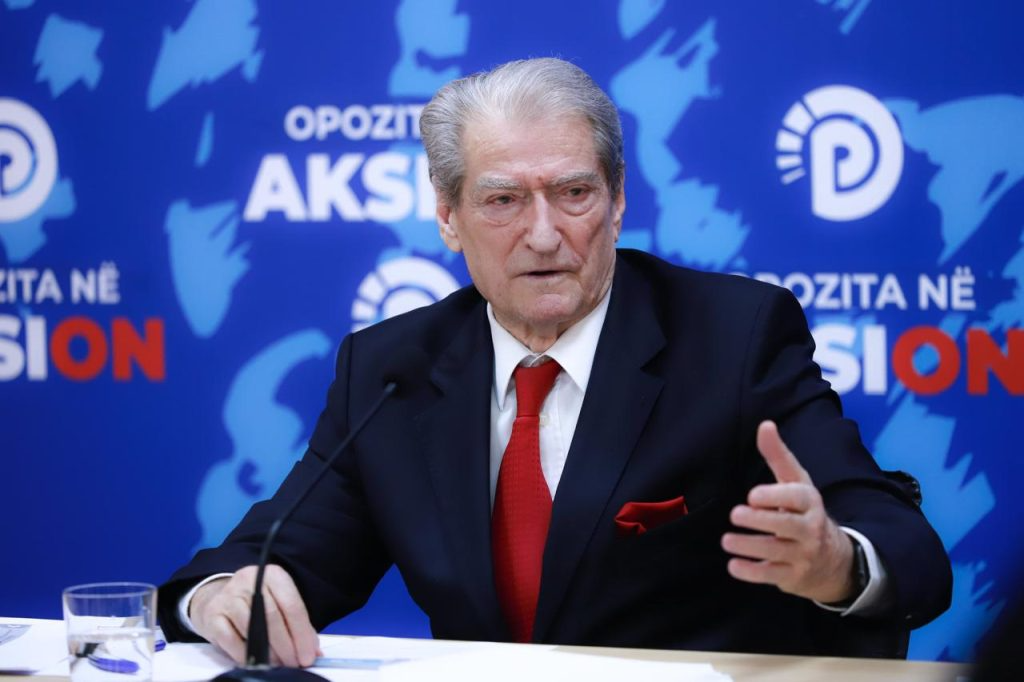By Barbara Halla
In a speech on January 29, Sali Berisha, the Chairman of the Democratic Party, announced that he would propose a law in parliament to amend the Albanian Constitution, recognizing only two genders: male and female.
This speech follows an executive decision by President Donald Trump, which establishes that a person’s sex is determined at the moment of conception and that there are only two sexes. Berisha also referenced the debate surrounding Parent 1 and Parent 2.
Berisha’s speech was rapidly shared by Albanian media. While the speech covered several key issues, local media focused on the gender proposal, highlighting the connection between Berisha and Trump.


In his speech, Berisha said, ‘We have prepared a law within the framework of de-Sorosization, which we are submitting today, with which we establish that the Republic of Albania recognizes two genders: those created by God, male and female.
Berisha references God, even though Albania is a secular country where religious beliefs are respected, but they are treated separately from the interests of the state (as outlined in Article 10, paragraph 4 of the Albanian Constitution).
Such a law contradicts the law on protection against discrimination, which prohibits discrimination based on ‘gender, gender identity, sexual orientation, and sex characteristics.’
By focusing on the gender issue, Berisha is bringing attention to a matter that does not represent a real risk to Albanian society. Discussions around being agender or non-binary—people who do not identify as male or female—are limited to small circles among young people in Albania.
However, while Berisha’s narrative exaggerates a marginal issue in Albanian society, it also brings marginalized groups into the discussion.
As various studies have pointed out, efforts to define rigid biological boundaries of gender create stigma for those who do not fit these narrow criteria. For instance, women who are seen as too masculine or men who display ‘feminine’ traits are often marginalized and subjected to violence.
Additionally, Berisha uses the term ‘de-Sorosization’, referring to American businessman George Soros, whose foundation has operated in Albania for several decades. Attacks on Soros and his foundation have been a recurring theme for Berisha, who has frequently spread disinformation about him.

In his speech, Berisha used the term ‘woke agenda’, referring to the term “woke,” which has been widely discussed in numerous political debates in the U.S. and beyond. This term relates to efforts by the global far-right to undermine laws and political movements that advocate for the rights of minorities, particularly regarding race, ethnicity, and gender. George Soros, who is of Jewish descent, has been at the center of many conspiracy theories claiming that he is attempting to control the governments of various countries through his organization, the Soros Foundation.
These narratives, aside from their connection to President Trump’s policies, are also part of a larger campaign that Russia, under the control of Putin, has been spreading, particularly targeting Balkan countries to turn them against the European Union.
In the past, Russia has propagated disinformation in countries like Bulgaria, Ukraine, and Hungary, claiming that pro-LGBT and feminist movements conflict with the traditional values of Eastern European nations. Such narratives undermine public trust in the EU, which frequently demands its member states align their anti-discrimination laws with EU standards. By repeating these themes, even if not directly influenced by Russia, they endanger marginalized groups, divert attention from critical issues within the country, and expose the public to harmful disinformation manipulation.











